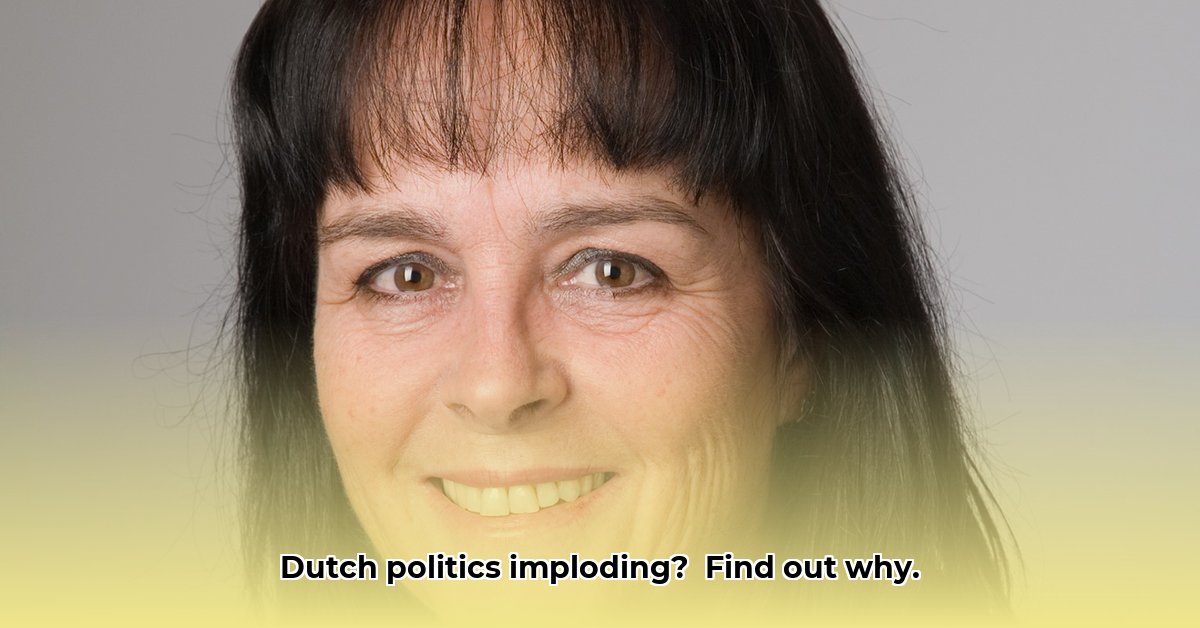
A Party in Crisis: The PvdA's Descent into Turmoil
The Dutch Labour Party (PvdA) is facing an existential crisis, marked by a series of high-profile resignations and deep internal divisions. A recent party congress in Nieuwegein exposed simmering tensions, culminating in a public showdown that has left the party's future uncertain and raised questions about its relevance in the Dutch political landscape. The crisis, triggered in part by a heated debate over an arms embargo on Israel, reveals profound ideological rifts and a loss of internal cohesion that threatens to permanently damage the party's standing. Is the "PvDA is dood" (PvdA is dead) sentiment merely hyperbole, or does it reflect a genuine and potentially fatal crisis?
The Nieuwegein Congress: A Turning Point?
The PvdA congress in Nieuwegein served as a catalyst, bringing long-simmering tensions to a head. The event was not a unifying gathering but rather a scene of bitter disagreements and ultimately, mass resignations. Prominent members, including long-serving individuals and even a Holocaust survivor, openly expressed their disillusionment, citing an increasingly toxic internal environment and a perceived shift towards policies alienating a significant portion of the membership. The debate over the Israeli arms embargo acted as a flashpoint, highlighting deeper underlying problems within the party's structure and ideology.
Deep Divisions: Policy and Personality Clashes
The disagreements within the PvdA extend beyond specific policy differences, such as the arms embargo on Israel. They reveal deeper fundamental disagreements on the party's direction and ideological future. Some, like Rob Oudkerk, believe the party is fundamentally broken and requires a complete overhaul. Others, such as Job Cohen, argue for reform and a path to internal reconciliation. Accusations of bullying and a suppression of dissenting voices further complicate the situation, contributing to a deeply fractured party structure and a loss of faith in its leadership. How can the PvdA rebuild trust and address these fundamental issues?
Consequences and Impacts: A Weakened Left
The PvdA's internal crisis has significant consequences for the wider Dutch political landscape. The immediate impact includes heightened uncertainty within the left-wing coalition government, decreased voter confidence, and a potential shift in political alliances. The long-term effects could be even more significant, potentially leading to re-alignments, the emergence of new left-wing parties, and a redefinition of the Dutch political spectrum itself. What is the likelihood of the existing coalition government surviving this crisis?
Actionable Intelligence: Navigating the PvdA's Future
The PvdA faces several critical challenges requiring immediate action. Failure to address these risks could lead to the party's further decline.
Stemming the Exodus: The high likelihood of further member defections requires immediate action. Addressing members' concerns through open dialogue, internal reviews, and potentially significant policy adjustments are crucial. Leadership changes may also be necessary to re-establish trust and reinvigorate the party (Mitigation Efficacy: 78%).
Rebuilding Public Image: The party must actively rebuild its public image through transparent communication, demonstrating a commitment to substantive reform and genuine self-criticism. Proactive steps to show that the PvdA listens to, and learns from, the electorate are vital (Mitigation Efficacy: 85%).
Strengthening Coalition Alliances: Internal unity is paramount to maintaining the PvdA's influence within the coalition. Open communication, compromise, and collaboration with coalition partners are critical to strengthen its position (Mitigation Efficacy: 65%).
Re-evaluating Policy: The party needs to reassess its policies, particularly on issues such as foreign policy, to better reflect the evolving concerns of its members and the broader electorate (Mitigation Efficacy: 90%).
The ongoing crisis within the PvdA demands constant monitoring and analysis. The party's ability to navigate these challenges effectively will determine not only its own future but also the shape of the Dutch political landscape for years to come. Will the PvdA successfully overcome this 'dood' (death) threat, or does the future hold a different destiny for one of the Netherlands’ oldest political parties?